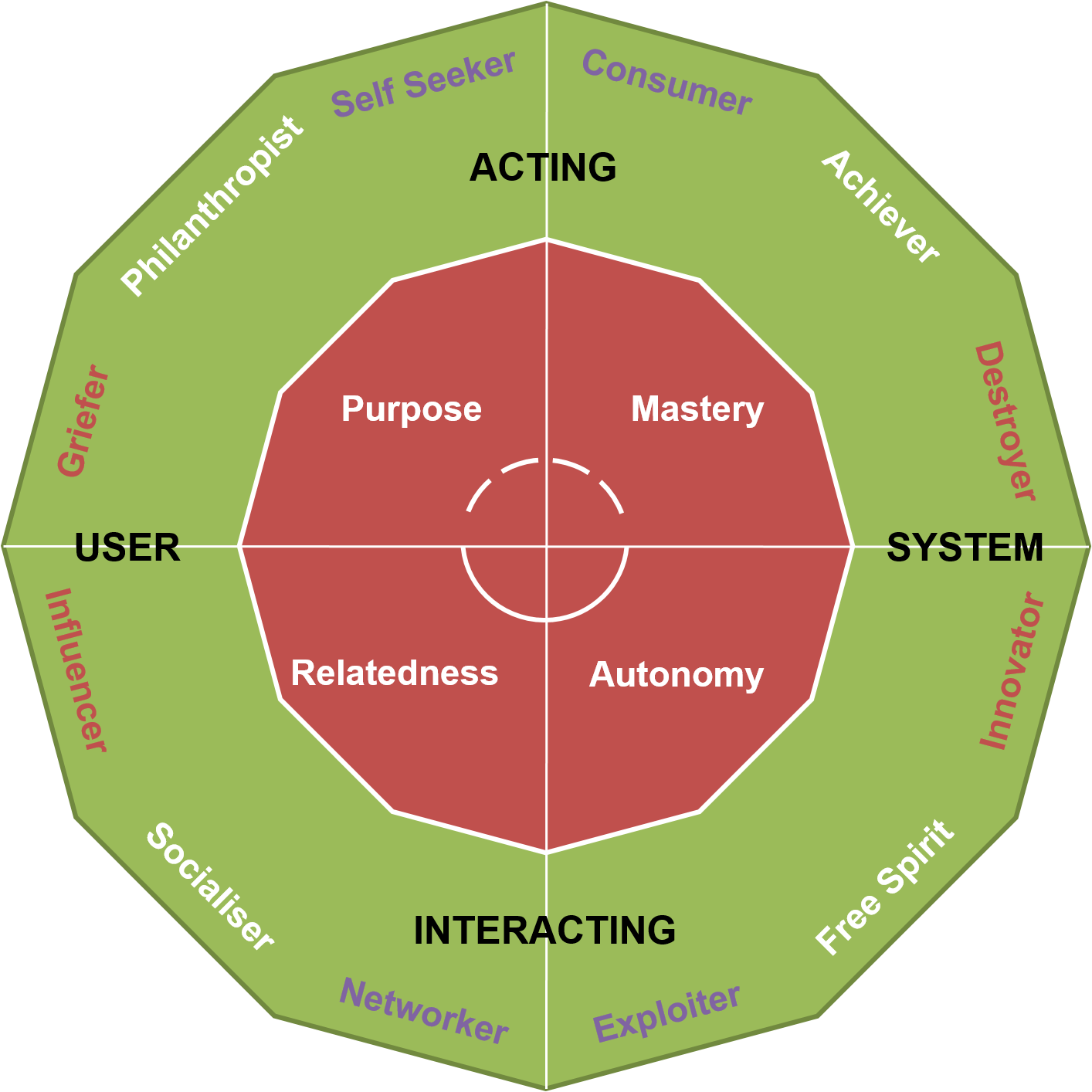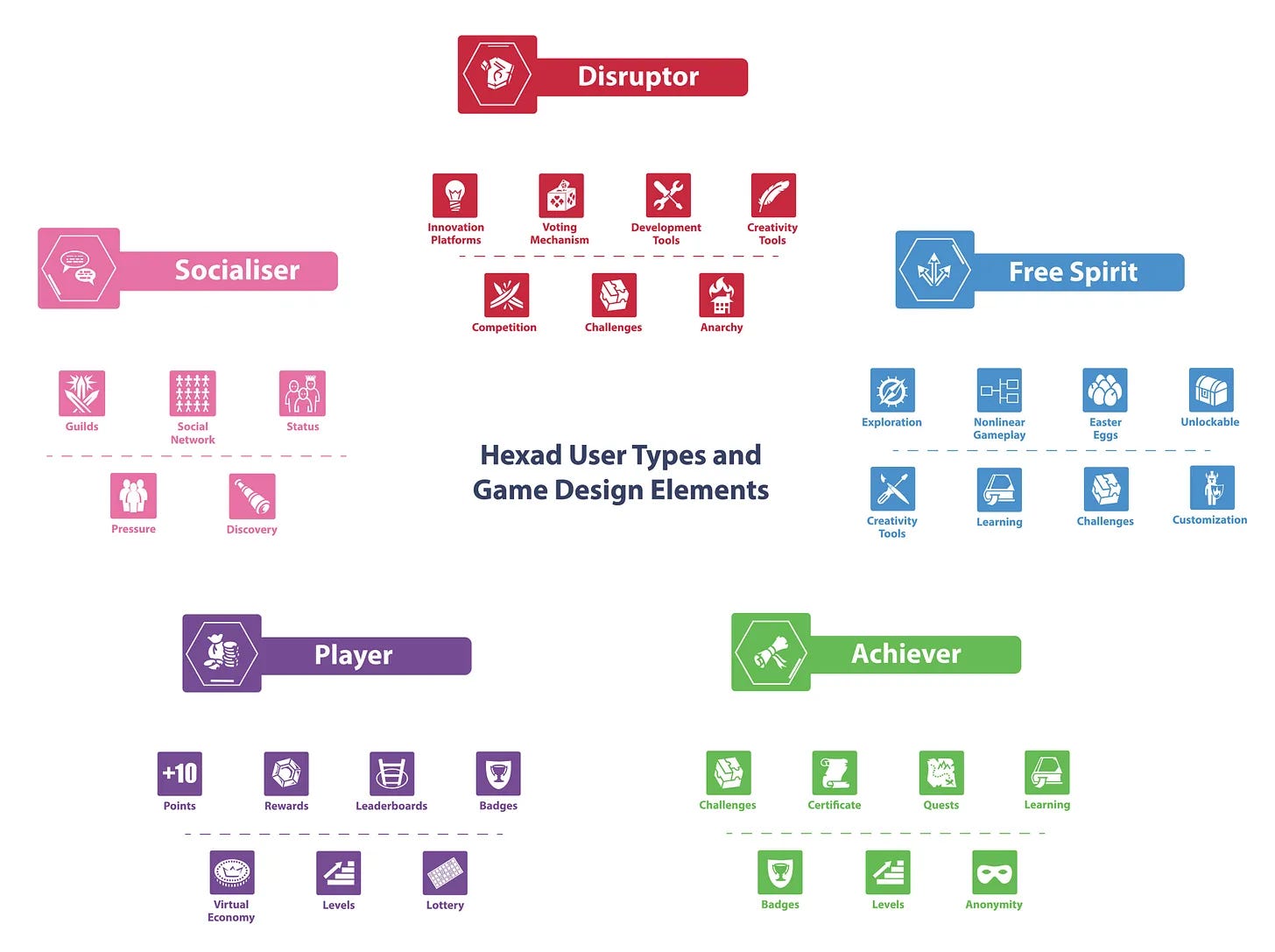Are you a Meta-Sociopath?
Gamification teaches us that gamers seek out six fundamental core drive experiences:
Purpose
Mastery
Autonomy
Relatedness
Change
Rewards
Those players that seek to optimize solely Rewards are called Sociopaths.
Sociopaths in the Metaverse are called Meta-Sociopaths.
A Visual Representation of Gamers And Their Core Drives
This is a visual representation of how the six core drives - purpose mastery autonomy relatedness change and rewards. - can be mapped together with geometric meaning intact by Diamond et. al..
The gamers that solely seek rewards at the cost of everything and everyone else might be called a Sociopath.
In the Metaverse, someone who solely seek rewards at the cost of everything and everyone else might be called a Meta-Sociopath.
In the Cryptoverse, someone who solely seeks rewards at the cost of everything and everyone else might be called _________________.
So how might you as an ecosystem designer respond to the knowledge of the core drives of their community members?
Easy. You can curb the enthusiasm of your community members by employing Gamified Design Elements.
The Purpose of a Blue Checkmark
Everyone on Twitter is thirsty for a blue checkmark. The blue checkmark verifies a Twitter user as someone who is noteworthy.
From a gamification perspective, the blue checkmark is known as a Gamified Design Element. The blue checkmark is a gamified design element known as a badge. A badge is a gamified design element that is designed to engaged gamers who seek the core drive of mastery signalled by achievement.
When I say words that core drive, achievement, mastery, I’m being very specific. These terms are all technically-defined terms in the User Type Hexad work by Diamond et. al.
The User Type Hexad isn’t the only framework you need to create and maintain communities.




Addendum: “There is no standard list of sociopath signs”
Source: https://www.healthline.com/health/mental-health/sociopath#signs
There’s no standard list of sociopath signs, but the signs and symptoms of ASPD include a persistent pattern of disregard for others. For example:
ignoring social norms and laws, or breaking rules at school or work, overstepping social boundaries, stealing, stalking and harassing others, and destroying property
dishonesty and deceit, including using false identities and manipulating others for personal gain
difficulty controlling impulses and planning for the future, or acting without considering the consequences
aggressive or aggravated behavior, including frequent fights or physical conflict with others
disregard for personal safety, or the safety of others
difficulty managing responsibilities, including showing up at work, handling tasks, or paying rent and bills
little to no guilt or remorse, or a tendency to justify actions that negatively affect others






